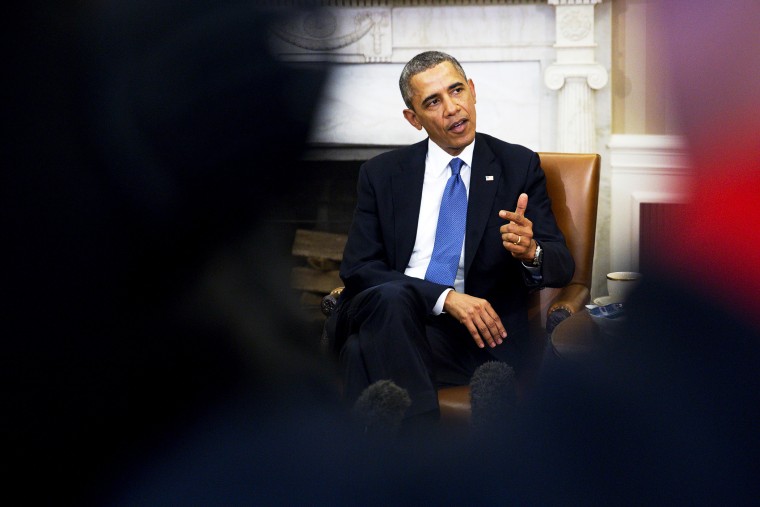How little is Congress planning to do on the budget this year? Senate Democrats aren't even going to release their own spending plan, arguing "it wouldn't be productive to relitigate it so soon after our two-year deal," as Washington Sen. Patty Murray said last week.
But President Obama has moved forward with his own budget anyway—a document that's more of a wish list and a political platform than anything else. On Tuesday, he unveiled a plan that would boost spending by $56 billion in 2015 and increase tax credits for low-income adults, paid for largely by raising taxes on wealthy individuals.
That new spending plan includes additional money for early childhood education, health and clean energy research, manufacturing, jobs training, infrastructure, and paid medical leave. It also increases funds for defense programs, including weapons modernization, nuclear R&D, and military training and maintenance.
Obama's new initiative would raise spending above the levels agreed to by the two-year deal that Murray and Republican Rep. Paul Ryan of Wisconsin hammered out in December. That agreement "did not go far enough," the plan says, pointing out that domestic discretionary spending will fall further in 2015—and will be "below 2007 funding levels adjusted for inflation."
The additional $56 billion in spending would be fully offset by a combination of cuts and fees, as well as tax hikes on multimillion-dollar retirement accounts. Half of the initiative would by paid for by fairly incremental tweaks to the budget—reducing crop insurance subsidies, hiking TSA fees at airports, selling broadband spectrum and eliminating budget redundancies. But the other half would come from reducing tax breaks for individuals who've accumulated enough to finance their retirement at $200,000 a year.
"Some wealthy individuals are able to accumulate millions of dollars in these accounts, substantially more than is needed to ensure a secure retirement," Obama's budget says in arguing for the tax hike.
While raising taxes on wealthy savers, the president's budget also expands the Earned Income Tax Credit, making it more generous for low-income workers without children. The measure has gained new momentum in GOP circles as well to combat poverty, and Obama had promised to move forward on the issue in his January State of the Union Address. The EITC expansion would be paid for by eliminating a tax break for hedge fund managers and private equity investors known as the "carried-interest loophole."
Obama has proposed many of these tax hikes before in previous budgets. But they're in the service of the anti-poverty, pro-mobility message that Democrats are trying to hammer home in the 2014 elections—with new proposals like an expanded EITC to add to the agenda. And coming from the White House, rather than Congress, Democratic candidates may simply pick and choose what they want to endorse.
